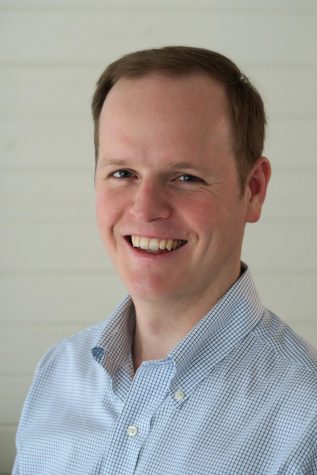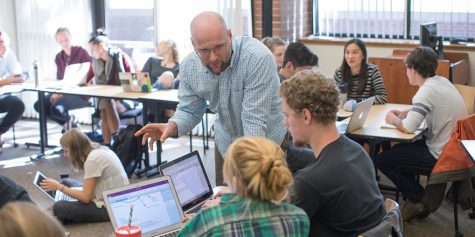Choosing between in-person or online instruction: Professors weigh individual preferences
November 12, 2020
As COVID-19 cases rise, professors have struggled to decide whether to teach in-person or online this spring. The Whitman administration sent out a survey on Oct. 8 to faculty asking them to list their teaching preferences for each of their spring semester classes.
The results of the survey, shared in an Oct. 30 email from President Kathy Murray, showed that 111 courses will be taught entirely in person, 116 courses taught entirely online, 117 courses taught in a hybrid style mixing in-person and online learning, and one course that students may elect to attend in person or online. These decisions depend on the plan that students will return to campus next semester, but teaching methods are still subject to change.
24 in-person courses are designated for student pods and lab classes.
Faculty members’ decisions were shaped by safety concerns, teaching concerns and students’ demonstrated learning ability during this online semester.

Miles Canaday, an assistant professor of music, elected to keep his two choral courses online next semester given the amplified dangers of singing during a pandemic for an airborne virus.
“Singing moved from being one of the most healthy, communal activities available to undoubtedly the most dangerous due to COVID-19,” Canaday said. “I believe it’s necessary to meet online to protect each other, especially given the current spike in cases in Walla Walla, the U.S. and the rest of the world.”
For others, including Eunice Blavascunas, assistant professor of anthropology and environmental studies, this fall semester played a big role in deciding course format preferences for the spring. Blavascunas currently teaches a first-year seminar course with 12 students that works well online.
“Students talk about a sense of community in that class,” Blavascunas said. “There is a gravity to this time, an understanding that ideas should be taken seriously and that we are in the midst of a time when careful intellectual thought is at risk. The seminar format lends itself well to having these types of existential discussions that ask students to think about who they are in relation to this moment we are living through.”
However, Blavascunas says the same cannot be extended to her larger anthropology lecture course.
“In my 36-student class, I tried to set up a design where students had very clear expectations and routine,” Blavascunas said. “While many students attend the synchronous lecture and discussion, cameras are often turned off and I don’t know if everyone is giving their full attention, or multitasking, or if they’re simply not even there… My biggest challenge is feeling like we are a cohesive community in the classroom.”
Blavascunas’ “Communism, Socialism and the Environment” course is planned to be entirely in-person next semester.
“I am very committed to being in person, even if that means we have masks on and are in a large awkward room. Given the extraordinary rise in COVID-19 [cases], and since I initially committed to in-person teaching, I have not selected a magic number of COVID-19 cases at which I would no longer teach [in person]; but I am concerned about the spikes and may need to change my mind about online teaching.”
The Walla Walla Union-Bulletin reported on Nov. 2 that more than 109 new COVID-19 cases have been identified in Walla Walla County since Oct. 30 — “the largest spike in positive test results the county has seen yet during this pandemic.” Yet, despite the increased cases, Blavascunas describes a shifting community reaction to the virus.
“I also know an increasing number of people around the U.S. who have had COVID-19 now, and it seems like a less urgent threat to me and my family and immediate friends,” she said. “When I read about other colleges that have managed COVID-19 outbreaks, I see that there are examples of ways to return to teaching in person, but there are examples of colleges that have failed, too. I feel that [Whitman] students could behave responsibly due to strong desires to be in Walla Walla, learn in person, and that the College could test regularly and enforce social distancing.”

Other faculty, like Professor of Philosophy Patrick Frierson, have planned to combine both the technology of online learning and the community benefits of in-person learning. Frierson’s course on Kant’s moral philosophy will allow students to elect to learn in person, online or in a hybrid style.
“This format takes full advantage of the close student-faculty connections that are possible with small class sizes in an environment oriented towards academic rigor,” Frierson said. “I plan to arrange students into pairs based on their preferences (online vs. in person) and then meet with them in the format they prefer. This allows for very small meetings (only three people at a time) when we are in person, and also for students to Zoom if they prefer that format.”
Frierson, who also plans to record in-person lectures, said that “the goal is to ensure that all students, whether they meet in person or online, have the truly extraordinary learning experience possible at a small college like Whitman.”





